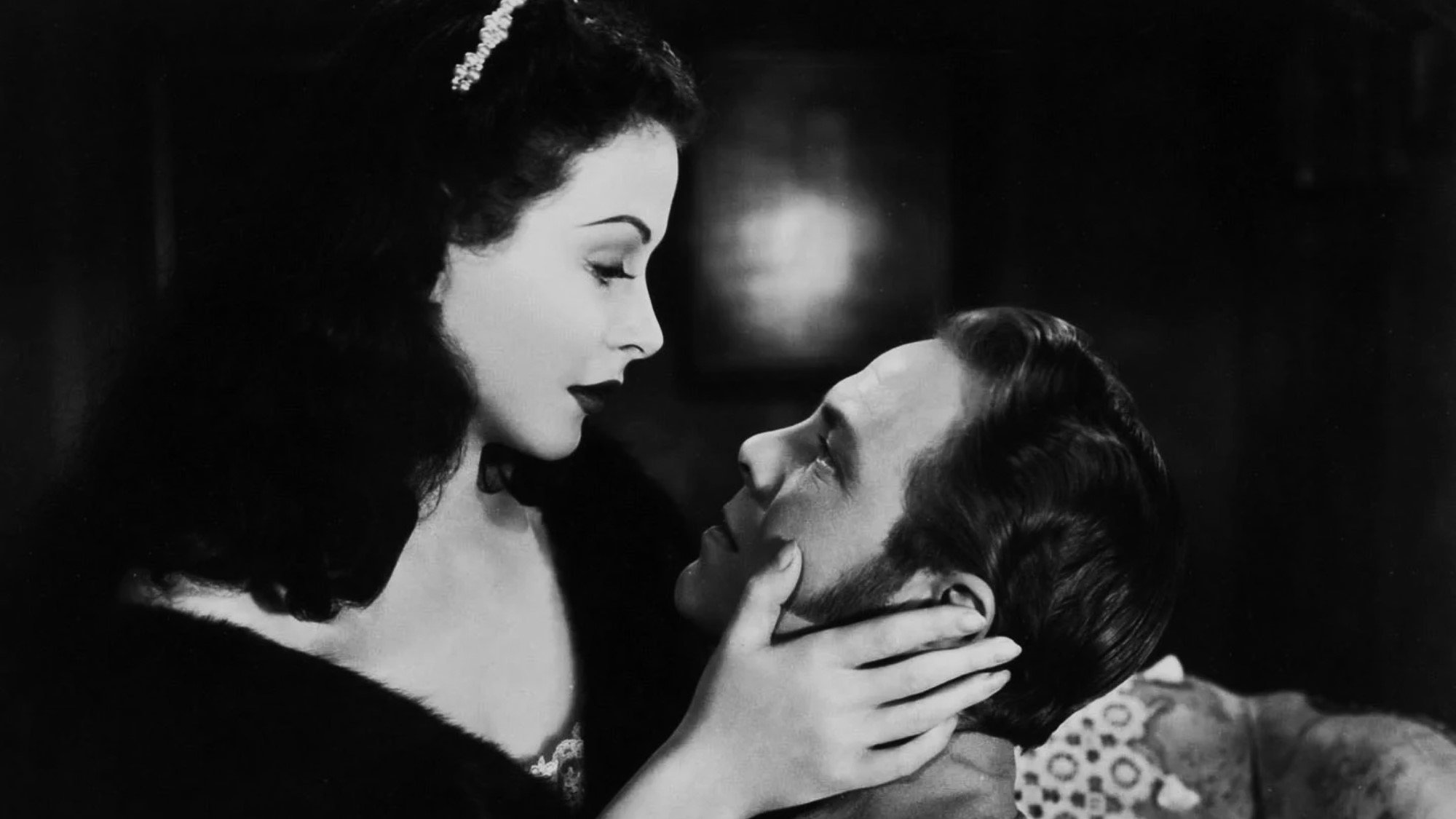Description
In early 19th century New England, an unscrupulous woman uses her beauty and wits to seduce, deceive and control the men around her.

The book that was talked of in a Whisper!
1946-10-25
$1.5M
100 min
In early 19th century New England, an unscrupulous woman uses her beauty and wits to seduce, deceive and control the men around her.
Bangor is mine and it owes me a living.
The Strange Woman is directed by Edgar G. Ulmer who also co-writes the screenplay with Hunt Stromberg and Herb Matthews from the novel of the same name written by Ben Ames Williams. It stars Hedy Lamarr, George Sanders, Louis Hayward, Gene Lockhart, Hilary Brooke, Rhys Williams and June Storey. Music is by Carmen Dragon and cinematography by Lucien N. Andriot.
I don’t want the youngest. I want the richest!
Well well, what an intriguing little period noir this is. Story deals with Jenny Hagar (Lamarr), a strong and scheming woman who in 1840s Bangor in Maine, uses men for her own gains whilst exuding a double persona that shunts her into the upper echelons of the town’s standings. But, as we become privy to Jenny’s back story and psychological make-up, you can feel that cloud of pessimism closing in.
There will always be arguments put forward about if the likes of The Strange Woman should be classed as noir or not, but with Ulmer and Andriot cloaking the tale with claustrophobic shadows and low lights, the blacks and whites atmospherically used, thus the visuals are in place to marry up with the story, and what a story.
Jenny Hagar is a classic femme fatale, in fact fatalistic could be her middle name. We get a sneak peak of her deviousness as a child, and then we see her as a luscious older beauty, dangling men around her fingers and fully committed to marrying purely for money. What follows Jenny around is murder, suicide, incest, seduction, greed, violence and alcoholism! And of course, self-destruction.
Jenny has no qualms about who she tramples on to achieve her ends, but the kicker in her story is that she does have good in her fighting to get out, she can be charitable at times, and as we come to understand her upbringing she even garners a level of sympathy from the audience. It’s this dual aspect of her make-up that intrigues greatly, but she’s fighting a losing battle, more so as Bangor is the wrong place for her, itself a confused mess of unsavoury or spoilt characters.
There were problems behind the scenes, but so many conflicting reports exist it’s hard to know what is true and who was pulling the main strings. What we do know is that Ulmer, armed with a bigger budget than usual, has crafted a moody and daring picture that strikes devilish notes without banging the drum too loudly. Striking scenes and imagery are many, thunderstorm seduction, lairy lumberjacks, river of death and the big finale are just some of the moments showing what Ulmer was capable off.
While Lamarr, for her pet project to move her into darker roles and be taken seriously as an actress, turns in a top performance. Unafraid of the material, she cuts loose with a blend of sexual dynamism and troubled soul. Around her are fine performances from Lockhart, Hayward and Brooke, though Sanders is a touch out of place. The pace sometimes sags, and motivations and actions of support characters could have been more fleshy, but in the main this is well worth taking a stroll down a dark alley for. 7.5/10
Ben Williams' original novel offered quite a different take on the gold-digging femme fatale and in this adaptation Hedy Lamarr takes on the title role. Escaping from a fairly brutal marriage to a drunk, she determines to improve her lot in life. She is clever and beautiful so easily attracts the attention of the wealthy, much much older "Isaiah" (Gene Lockhart). She also attracts the attention of his son Louis Hayward and of his company right-hand man "John Evered" (George Sanders). This is a little long; but it is atmospheric, the writing is good - the plot a little more complex than might be expected from this kind of melodrama - as is the cinematography, and Lamarr plays the vulnerable but manipulative "Jenny" a little like Vivien Leigh might have done.